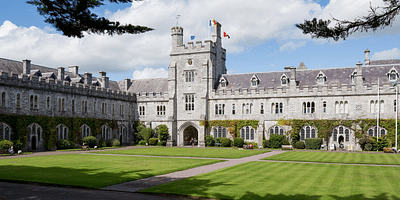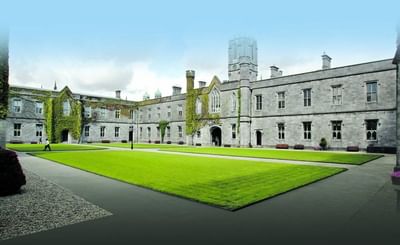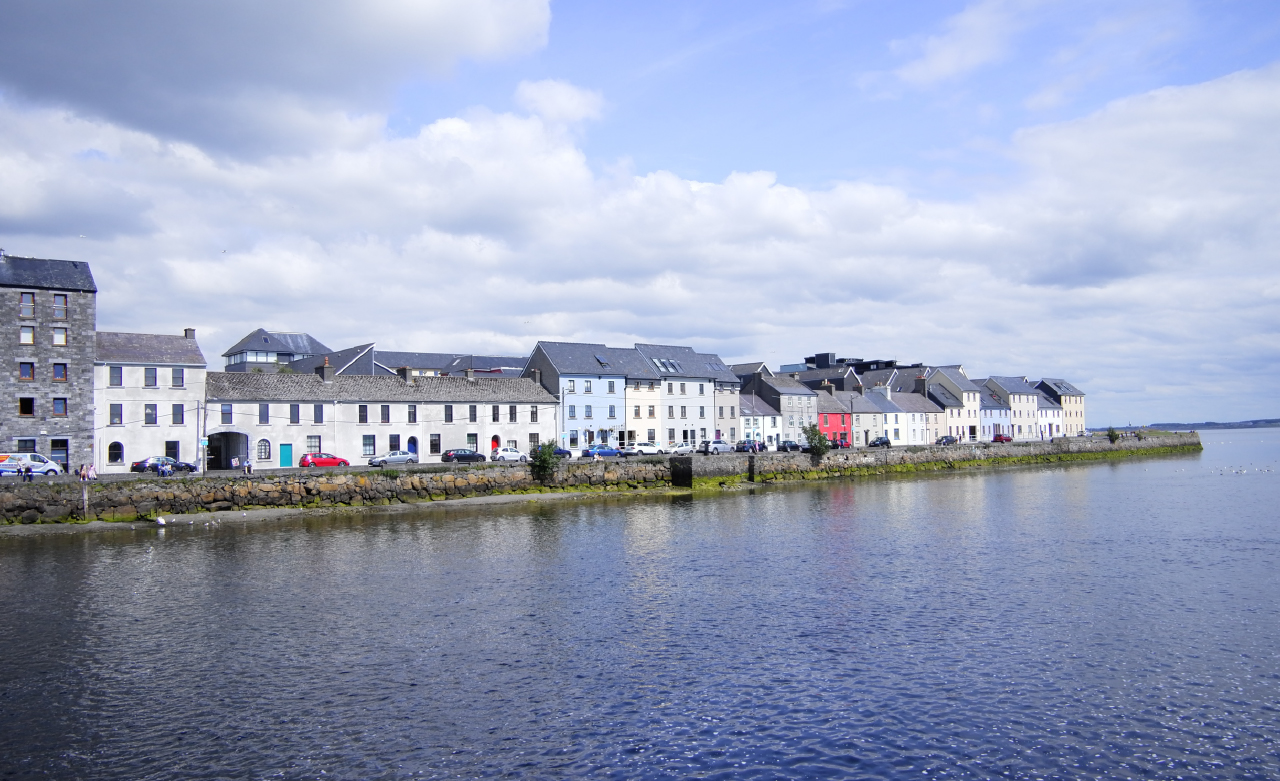Study in Ireland

Ireland is one of the most popular destinations for international students heading to Europe. Ireland, with its beautiful setting in the British Isles, has also earned a reputation as one of Europe's most beautiful countries. The country has a long and storied history, as well as centuries of tradition and culture. Every year, over 30,000 students fly in from all over the globe to study in Ireland, attracted due to a number of factors such as cultural diversity, scholarship availability, full-time and part-time work opportunities, and much more. Aside from the undergraduate and postgraduate degrees, students have plenty of opportunities for post-doctoral studies with Irish universities having great research links with other universities in the world.
Key Highlights Of Studying In Ireland
|
Key Highlights |
Details |
|
Number of Universities |
10 universities 10 Institutes of Technology 7+ private higher education institutions |
|
Top 5 Universities (QS World University Rankings 2022) |
Trinity College Dublin University College Dublin Royal College of Surgeons in Ireland National University of Ireland Galway University College Cork |
|
Cost of Studying (per year) |
€10,000 to €35,000, depending on the course and institution |
|
Cost of Living (per month) |
€1,502 to €1,614, depending on location and lifestyle |
|
Top Scholarships for international students |
Government of Ireland International Education Scholarships Irish Research Council scholarships UCD Global Excellence Graduate Scholarship Trinity College Dublin scholarships NUI Galway scholarships |
|
Part-time Work |
20 hours per week during term time and full-time during holidays |
|
Language Requirements |
A minimum of IELTS 6.0 or 6.5, or TOEFL 80 or 90, depending on the university & course; some courses may have higher requirements |
Education System in Ireland
If you’re planning to study abroad in Ireland, you will have access to multiple opportunities such as academic excellence, globally recognised qualifications, a dynamic campus culture, rich research & development, and numerous job prospects. For those of you who plan to study in Ireland, here’s a glimpse of the education system for you to gain a broader understanding of how to go about your studies.
The Irish education system is quite comparable to that of the United Kingdom, which explains the high level of education it gives to its students. Ireland's educational system is divided into four tiers: -
- Pre-Primary & Primary Education
- Post-Primary Education
- Training & Further Education
- Higher Education
Higher Education
In Ireland, higher education consists of universities, colleges, and institutes of technology, the majority of which are funded by the Irish government. Ireland has 7 universities, 7 colleges of education, 15 private higher education institutions, and 14 technological institutes (IoT). In Ireland, there are a few more private third-level institutions offering specialised education in fields such as business studies, art and design, law, medicine, and so on.
You can study in Ireland by opting for degree programmes, non-degree programmes, and/or, pathway programmes. Irish institutions have made arrangements with pathway providers to give students the additional support and guidance they require to succeed. Higher education in Ireland is divided into 2 semesters -
First Semester: September - December
Second Semester: Late January - May
Why Study in Ireland?
International students are drawn to Ireland for a variety of reasons. If you've considered studying a master's in Ireland or even a bachelor's for that matter, keep reading to see why so many international students have chosen to study in Ireland.
World-Class Education: One of the key reasons that international undergraduate and graduate students choose to study in Ireland is because it is an ideal location for anybody seeking a world-class education. Specifically, world-class education in a forward-thinking, dynamic country with exciting job opportunities.
Part-time Employment Opportunities: Typically, institutions in Ireland encourage students to work part-time in order to fund their basic expenses. Courses are typically flexible and developed in such a manner that you can study and work in Ireland at the same time. You can create a part-time plan with flexible course hours. Ireland provides post-work visas to students, allowing them to work in the country for an extended period of time.
Low Cost Of Education: Because most institutions are supported by the state, the cost of life and education in Ireland is comparatively low. While tuition costs vary depending on the course and university, the fee is quite low in comparison to other places. Aside from the cheap education costs in Ireland, the normal living expenditures are also reasonable.
Safety: Ireland is a highly safe, pleasant, and welcoming place to stay. Ireland is ranked 12th in the world on the Global Peace Index and 22nd on the World Happiness Index. According to the OECD 2019 Education Study, young Irish people have the world's fourth-highest educational standard.
Available Courses To Study
Ireland's education system is rapidly expanding. Since 2012-13, there has been a 5% growth in the overall number of overseas students. Almost nine out of ten students engaging in research attend universities. English, History, Politics, Management, Engineering, Information Technology, Arts and Humanities, and other major courses are among those provided by Irish educational institutions. Ireland also provides English language classes as well as short courses for students who are interested.
Finances
Cost of Education in Ireland
Ireland is one country where high-quality education is provided at a lesser cost than in other countries. This is b Because the duration of graduating courses is typically 12 months, as opposed to the 16-24 month duration of programmes in other countries. The tuition fees you pay are determined by the type of qualification and institution you choose. You will require between €10,000 and €25,000 each year to meet your tuition costs.
Courses in the humanities, education and arts are often less expensive, but areas such as medical, engineering, business, and management are more likely to be more expensive. If you want to study in Ireland at a higher level, the tuition price is usually more, and the expenses vary based on the programme.
Cost of Living in Ireland
The cost of living is primarily determined by where you reside in Ireland, as well as how often you socialise. However, an international student typically requires between €600 and €1000 per month. Prices in Ireland's main cities and smaller towns vary greatly, with Dublin being the most pricey place to live in. Some of the major elements that affect the cost of living as an international student in Ireland are as follows:
|
Particulars |
Expenses (Per Month) |
|
Off-Campus Accommodation |
€488 |
|
On-Campus Accommodation |
€600 |
|
Transportation |
€109 |
|
Food |
€540 |
|
Utilities |
€185 |
|
Entertainment |
€48 |
|
Groceries |
€44 |
|
Clothes |
€88 |
|
Total Cost of Living with Off-Campus Accommodation |
€1,502 |
|
Total Cost of Living with On-Campus Accommodation |
€1,614 |
|
Annual Cost Of Living |
€18,024 |
Cost Of Studying In Ireland
Interest rates as low as 8.9% *
Avg. on-campus living expense €27,948
250K+
Students Assisted
800Cr+
Loan Amount Disbursed
5000+
Loans Sanctioned
Admission Process
If you’ve set your mind to study in Ireland, there are some things you need to keep in mind prior to applying to the universities. A minimum academic score of 60 per cent or higher in Standard XII is required for each subject. Foundations and Diploma programmes are offered to students with a GPA of approximately 50%. Before commencing your degree programme, it is required that you must be at least 18 years old. It is vital to remember that, while the admittance requirements for Irish institutions are lower, the educational level is not. As a result, you should carefully prepare yourself to cope with the high grade of education during the following few years.
Documents Required:
- Mark Sheets of Standard X, XII, and the bachelor’s degree (if applicable)
- TOEFL or IELTS scores
- Letter of Recommendation (s)
- Statement of Purpose (SOP)
- Resume/CV
- A Portfolio especially if you're getting into arts, media, or fashion courses
- Certificates of extracurricular activities
- Evidence of sufficient funds
- A Health insurance policy
- A copy of your passport
Process:
- Start looking for colleges and courses.
- For detailed information, contact universities or visit websites.
- Shortlist the universities on your list.
- Take language tests such as the TOEFL or IELTS.
- Prepare a Statement of Purpose and get letters of recommendation.
- Register at the Central Applications Office.
- Apply to universities that are a good fit for your interests.
- Attend video interviews with the universities that have shortlisted you (if applicable)
- Apply for a Study Visa if you are accepted.
Admission Requirements to Study in Ireland's Universities
Ireland has approximately 2,000 study programmes in various universities, offering students with numerous options for studying in the country. Despite the fact that each programme has its unique application process, the prerequisites are not considerably different.
When applying to Irish universities, international students must take into account both the language requirements and the entry requirements.
Language Requirements
Because most universities in Ireland offer courses in English, students must first pass an English language proficiency test. Each exam requires a minimum score of:
- IELTS: 6.0
- TOEFL iBT: 90
- PTE: 36 (UG), 63 (PG)
- Cambridge ESOL: C1 or C2
If a student has completed English GCSE or GCE examinations throughout their school years, several universities may waive the language competence test requirement.
Other Aptitude Tests
- Students planning to study medicine or other healthcare courses must take the Health Professions Admission Test (HPAT) &Graduate Medical School Admission Test (GAMSAT).
- A GMAT score is also required to obtain an MBA from an Irish educational institution.
Entry Requirements:
- Scanned copy of passport
- Academic transcripts, including High school leaving certificate (for UG courses)
- Proof of a Bachelor's degree or similar (for PG courses)
- Any other certificates showing academic merit
- Statement of Purpose for Irish Universities
- Financial statements
- Resume/CV
- LOR
- Passport-size photographs
Intakes in Ireland
|
Intake Period |
Application Deadline |
Semester Start |
|
Autumn |
June/July |
September |
|
Spring |
September/October |
January |
Visa Process and Requirements
If you are an international student from a country other than the EU or EEA, you must apply for an Irish student visa. You will be eligible for one of two types of visas depending on the length of your study programme:
Student Accommodation Ireland
Discover the finest and most affordable student accommodation near Griffith College with UniAcco. With our guidance, you will find secure student housing options with ample amenities and facilities to keep you satisfied. Choose from a wide range of properties near Griffith College including flats, student halls, studio apartments, private apartments, and many more. Student accommodation near Griffith College comes with maximum comfort at affordable prices. The Griffith College has something for everybody and therefore your time here will be comfortable and pleasant with the right accommodation.
With UniAcco serving 10,000+ students across the globe, become a part of our ecosystem and get the best guidance to flourish your study abroad dream near Griffith College. Get the help of experts at UniAcco and choose the best student housing near Griffith College that will make your study abroad journey worthwhile!














